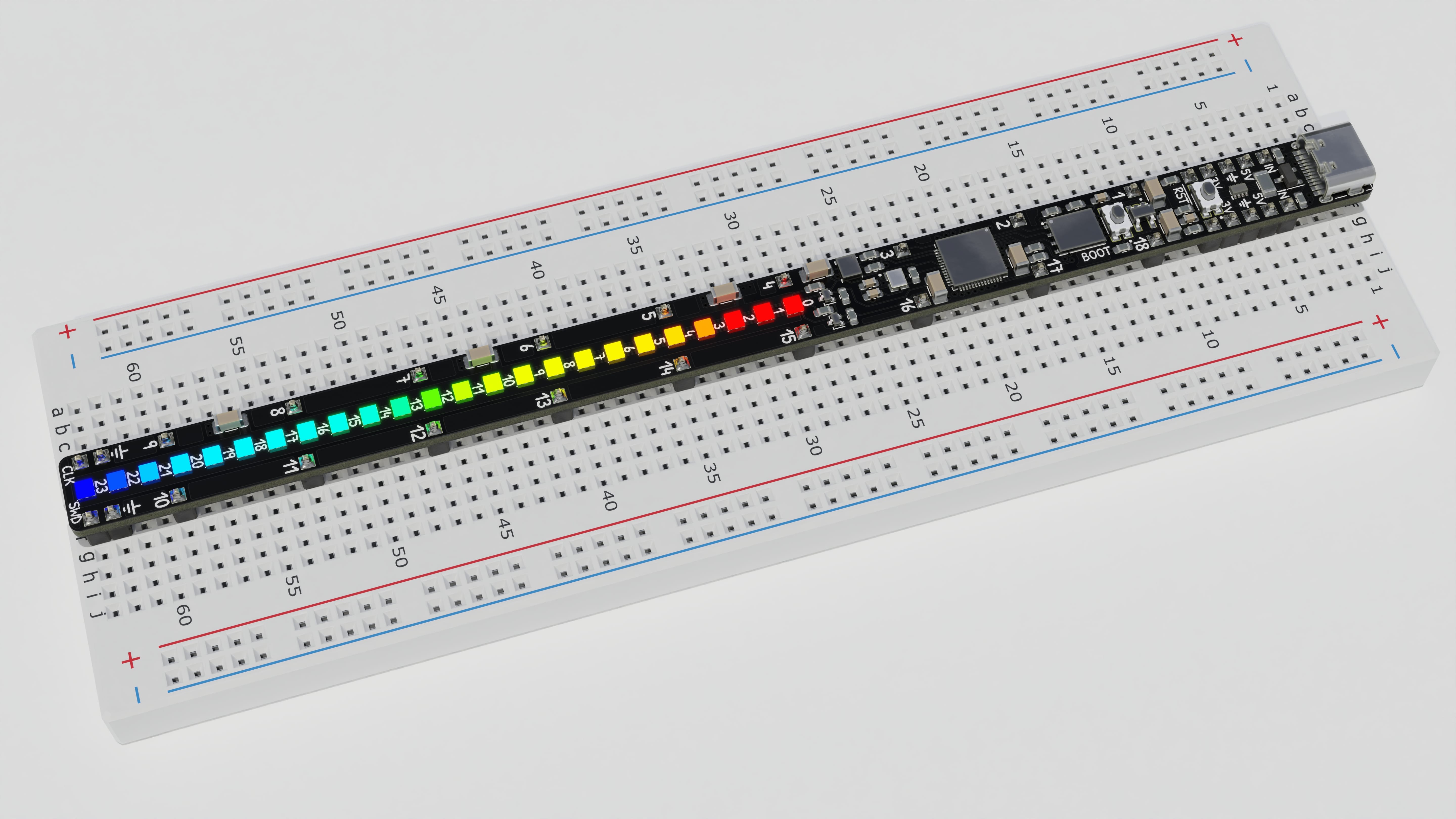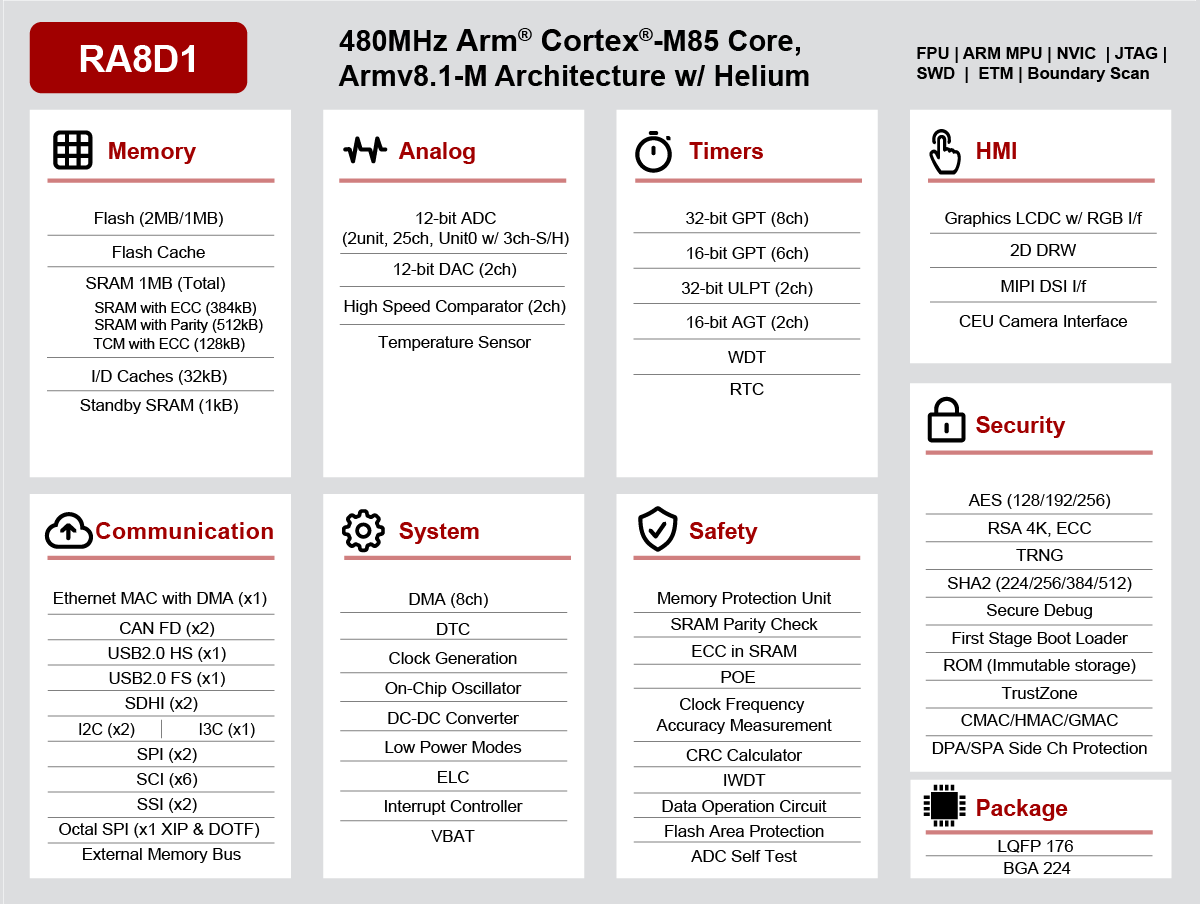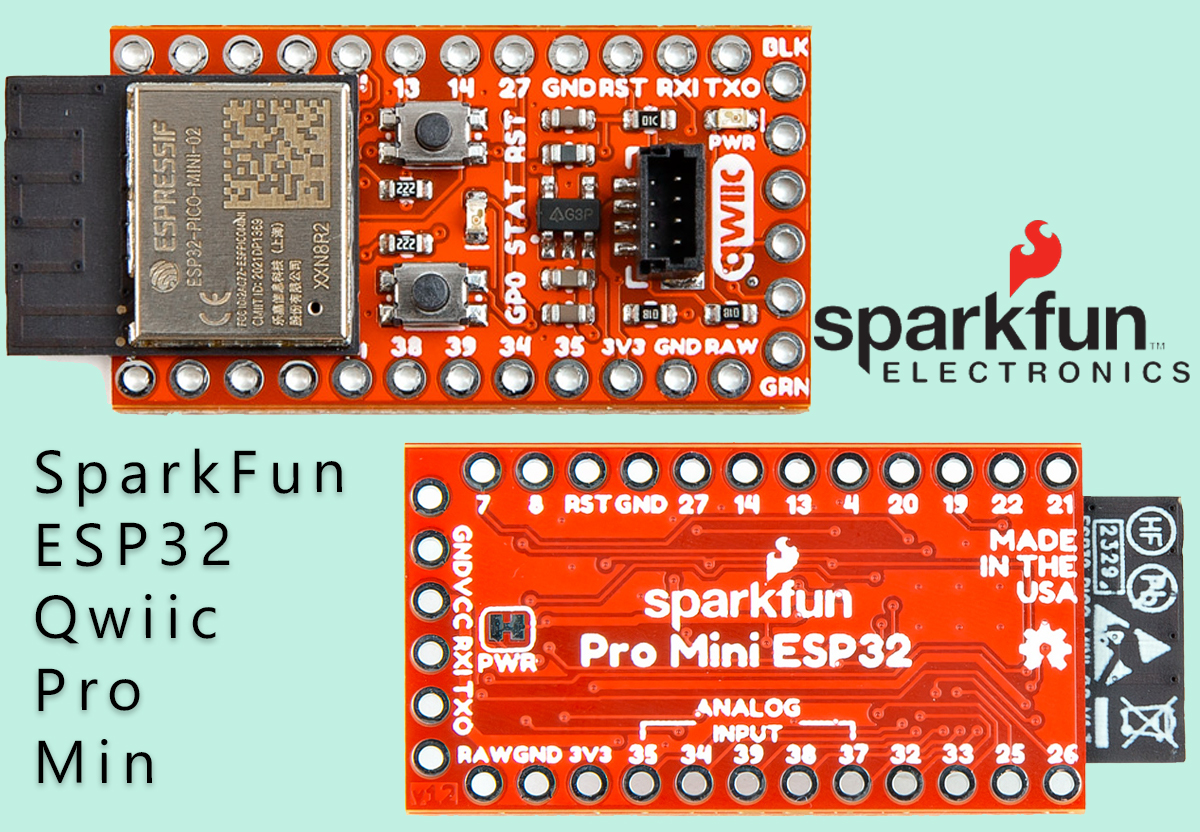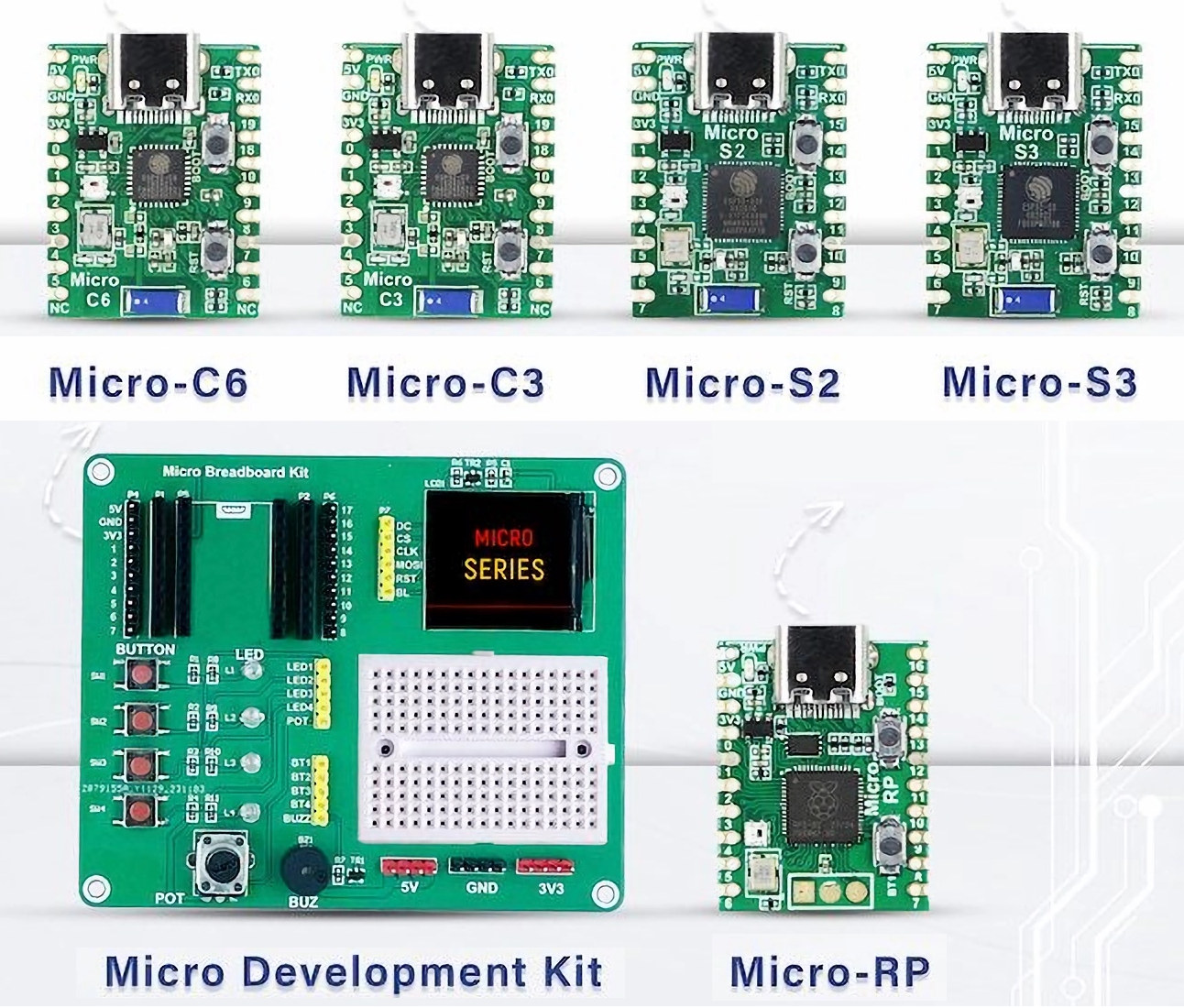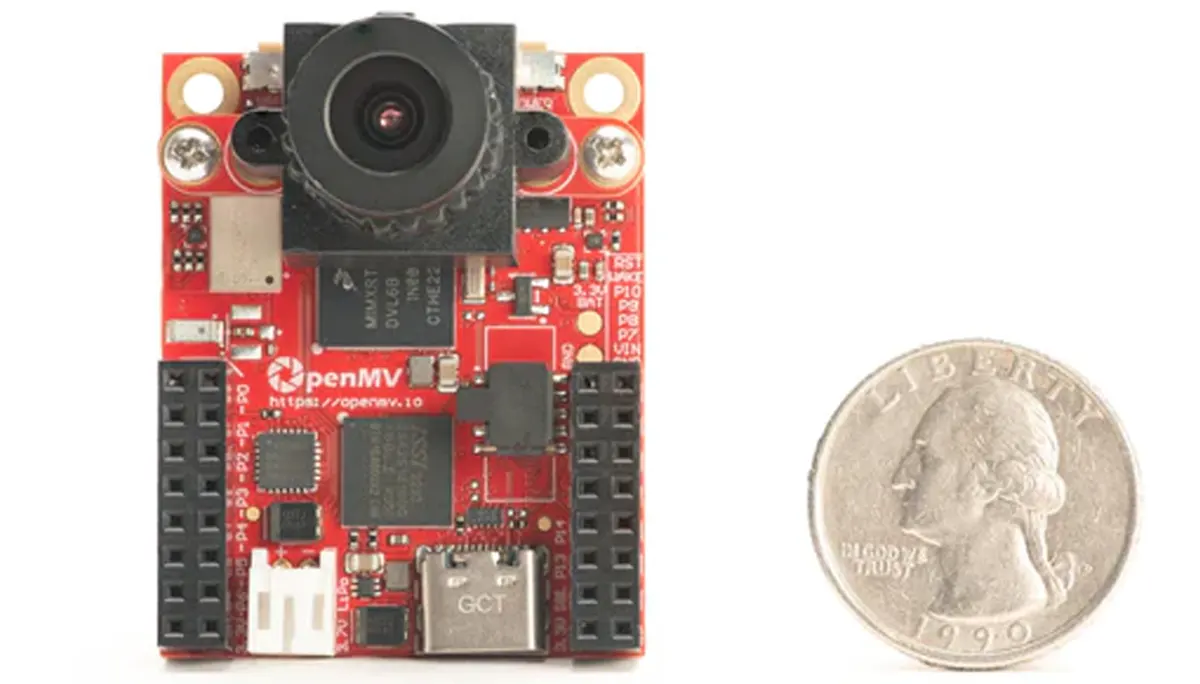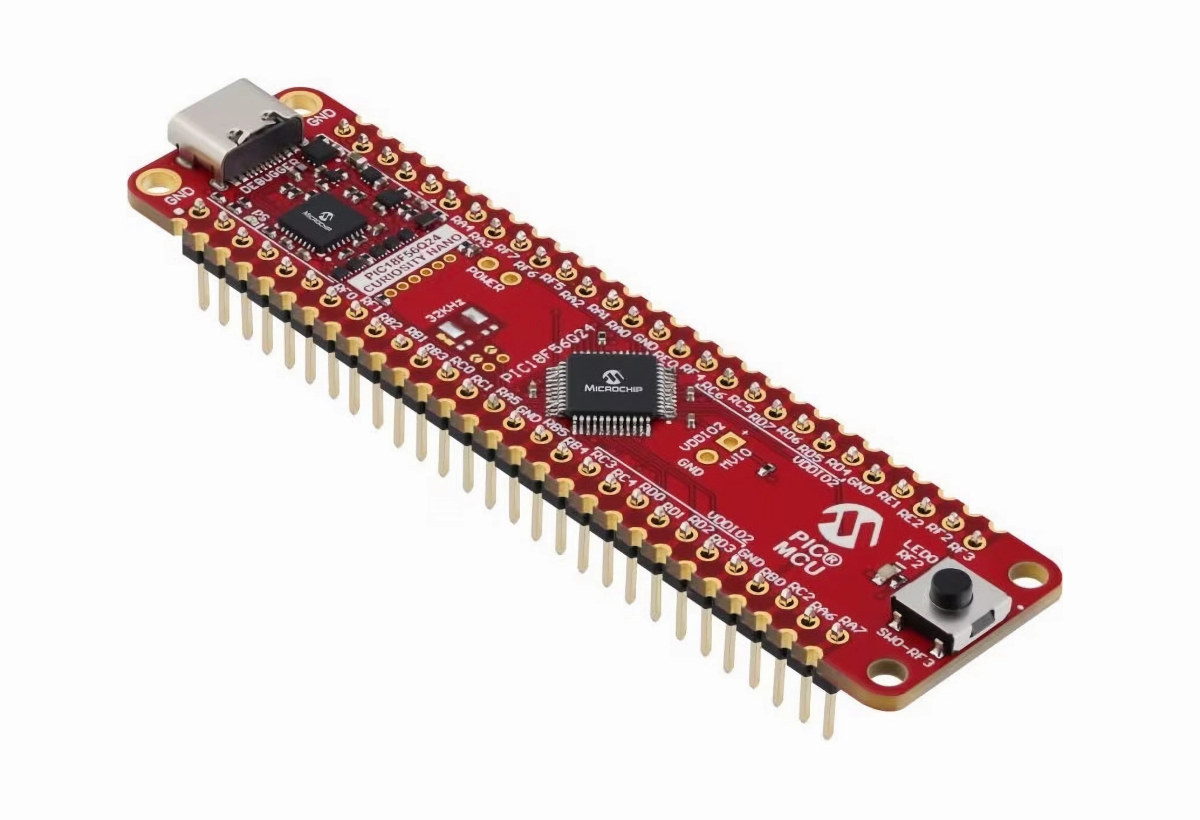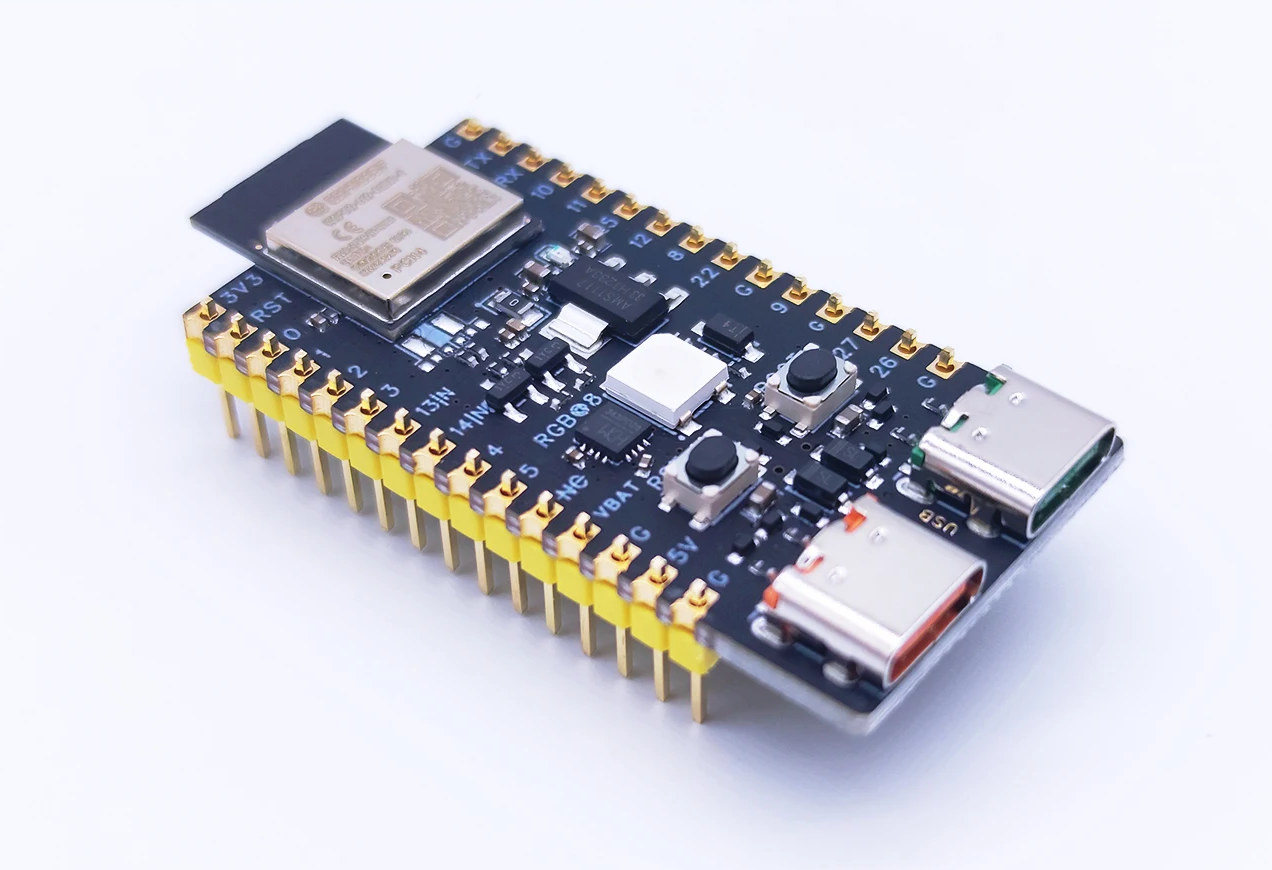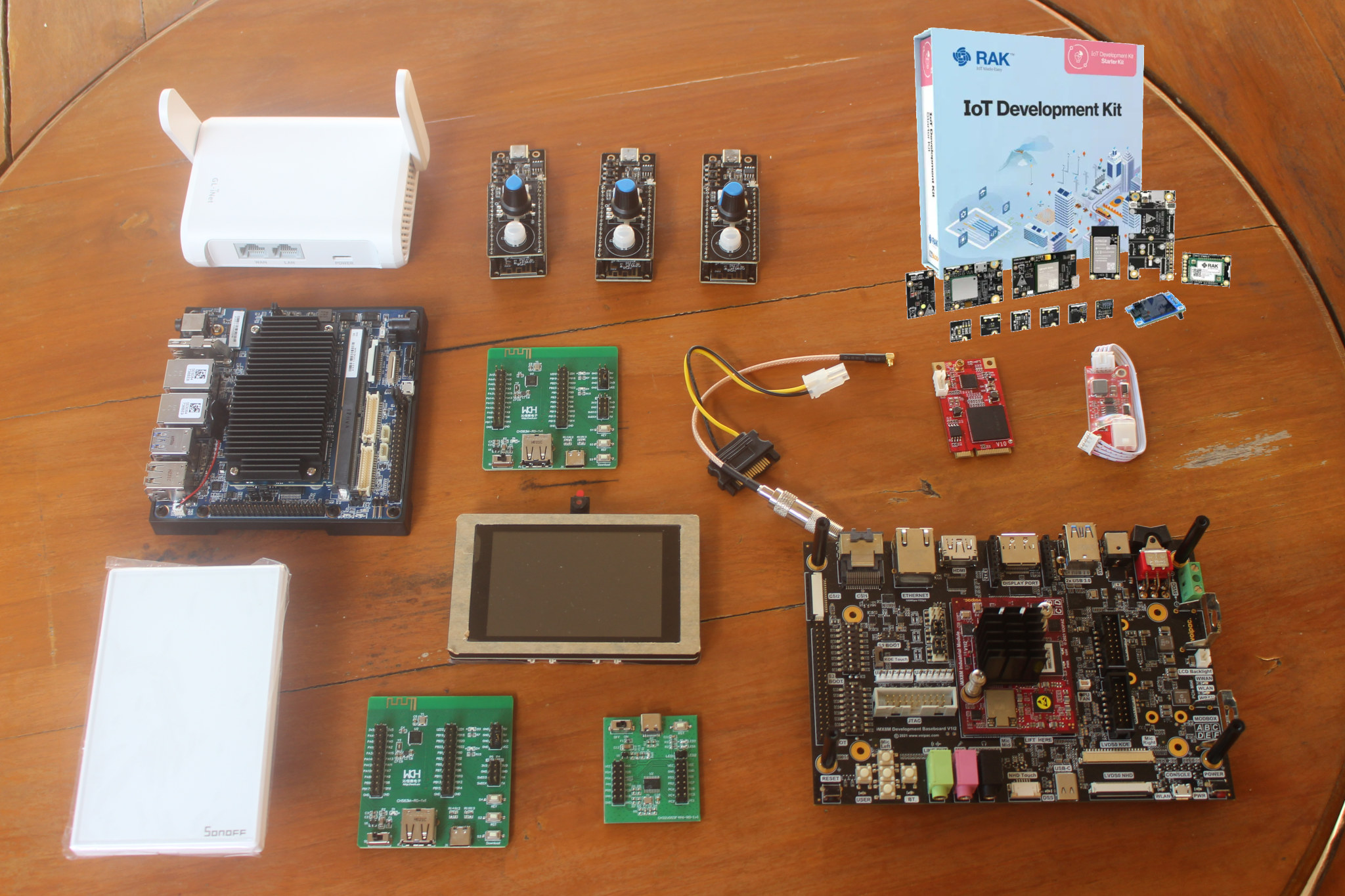The Raspberry Breadstick is a breadstick-shaped development board that is designed for ease of use. Unlike other development boards, the Breadstick is built to fit directly on your breadboard and interface with the other electronic components in your project without the need for lengthy jumper wires. It serves to deliver a prototype that is neat, straightforward, and easy to troubleshoot. It is based on Raspberry Pi’s debut microcontroller, the RP2040, which is the same MCU chip that powers the Raspberry Pi Pico and several other boards. We recently covered the Waveshare RP2040-PiZero that comes in the Pi Zero’s form factor. The RP2040 is cheap and supports C/C++, MicroPython, and CircuitPython. The Breadstick has other interesting features such as a lineup of 24 addressable RGB LEDs with fast refresh rates, a 6-axis inertial measurement unit for collecting acceleration and rotation data, as well as 16MB of external flash storage for your […]
Renesas RA8D1 Arm Cortex-M85 SoC features LCD display interfaces, 2D graphics accelerator
Renesas RA8D1 is a new Arm Cortex-M85 microcontroller with graphics capabilities such as a 2D graphics accelerator and MIPI DSI and parallel RGB interfaces to connect an LCD that will make the chip suitable for HMI applications. Renesas introduced the world’s first Arm Cortex-M85 microcontroller with the RA8M1 just a few weeks ago, but the MCU has limited multimedia capabilities with just a 16-bit Capture Engine Unit (CEU) interface to connect a camera. The second member of the Renesas RA8 family fills this void with the RA8D1 microcontroller adding an LCD controller and a 2D graphics drawing engine on top of the CEU camera interface. Renesas RA8D1 specifications: MCU core – Arm Cortex-M85 clocked at 480 MHz with Helium MVE (M-Profile Vector Extension) with 32KB I/D caches, 12KB data flash Memory & Storage 1MB SRAM with TCM (128KB) 1MB to 2MB Flash memory 32-bit external SDRAM interface Display interfaces and […]
ESP32 Qwiic Pro Mini is an ESP32 board in Arduino Pro Mini form factor
SparkFun’s latest development board, the ESP32 Qwiic Pro Mini, puts the Espressif ESP32-PICO-MINI-02 on a compact Arduino Pro Mini footprint. It also includes an onboard QWICC connector for easy interfacing with a wide range of sensors and peripherals. We have already covered other Sparkfun dev boards like DataLogger IoT, Datalogger IoT – 9DoF, and SparkFun Thing Plus Matter you can check those out if interested. Like any other ESP32 board, this also uses an ESP32 microcontroller which features a 32-bit dual-core processor, 520kB of SRAM, 2MB of PSRAM, 8MB of flash memory, and 16 kB of additional SRAM in its RTC. It supports Bluetooth 4.2 and BLE and has ADC and DAC, touch detection, PWM, TWAI, Ethernet MAC, UART, SPI, SDIO, I2C, and I2S interfaces. As reported in a Hackster article, the board also features a Qwiic Connector for solderless connections to sensor boards and add-ons, positioned at a 90-degree angle […]
Microflex MCUs – Tiny USB development boards based on ESP32-S3, ESP32-S2, ESP32-C3, ESP32-C6, or Raspberry Pi RP2040 (Crowdfunding)
SB Components is back with yet another crowdfunding campaign this time with the Microflex MCUs USB development boards all with the same tiny form factor and offered with a choice of five microcontrollers namely Raspberry Pi RP2040, ESP32-S3, ESP32-S2, ESP32-C3, or ESP32-C6. Microflex MCUs share the same layout with a USB-C port for power and programming, a built-in RGB LED, two buttons for Boot and Reset/User, and two rows of 10-pin with through and castellated holes to access the GPIOs and power signals such as 5V, 3.3V, and GND. But they differ in terms of the processor used, wireless features, and available I/Os as shown in the table below which sadly lacks any information about the flash and eventual PSRAM… The illustration below includes some more details for the Micro-C6 with the main components, ports, and a pinout diagram. Programming the firmware for the ESP32-series can be done through the […]
OpenMV CAM RT1062 camera for machine vision is programmable with MicroPython
Following the success of the OpenMV Cam H7 and the original OpenMV VGA Camera, OpenMV recently launched the OpenMV CAM RT1062 powered by NXP’s RT1060 processor. This new camera module integrates a range of features, including a high-speed USB-C (480Mbps) interface, an accelerometer, and a LiPo connector for portability. Similar to its predecessor, this camera module also features a removable camera system, and it is built around the OV5640 image sensor which is more powerful in terms of resolution and versatility. However, the previous Omnivision OV7725 sensor, used in the OpenMV Cam H7 has a far superior frame rate and low-light performance. OpenMV provides a Generic Python Interface Library for USB and WiFi Comms and an Arduino Interface Library for I2C, SPI, CAN, and UART Comms which can be used to interface your OpenMV Cam to other systems. To program the board, you can use MicroPython 3 with OpenMV IDE, […]
Microchip PIC18-Q24 8-bit MCU focuses on security and supports Multi-Voltage I/O (MVIO)
The newly introduced Microchip PIC18-Q24 8-bit MCU implements security measures such as the Programming and Debugging Interface Disable (PDID) feature and optional support for an immutable bootloader, as well as support for Multi-Voltage I/O (MVIO) to interface with digital inputs or outputs at different operating voltages without the needs for level shifters. While it’s fun to find a new MCU platform that you can hack via serial, JTAG, or other debug interfaces, it can be a security issue, and the Microchip PIC18-Q24 aims to make that impossible by disabling programming and debugging interfaces and the 8-bit microcontroller also offers an option to make the bootloader impossible to modify once a specific configuration bit has been set. Microchip PIC18-Q24 key features and specifications: MCU core – 8-bit C compiler optimized RISC core @ up to 64 MHz Memory – Up to 4 KB of Data SRAM Memory Storage – Up to […]
WeAct ESP32H2-N4 – A $6 Bluetooth 5.2 LE, Zigbee 3.0, and Thread development board
WeAct ESP32H2-N4 is a low-cost ESP32-H2 development board with Bluetooth 5.2 LE, Zigbee 3.0, and Thread connectivity with a design very similar to the one of Espressif Systems’ ESP32-H2-DevKitM-1 development board, but sold for just $5.70 plus shipping. The ESP32-H2 wireless microcontroller is basically the little brother of the ESP32-C6 without WiFi and aims at low-power nodes in short-range IoT networks. We have previously seen it in Espressif hardware like the aforementioned ESP32-H2-DevKitM-1 and the ESP Thread Border Router board combining ESP32-H2 & ESP32-S3 wireless chips, but so far not in third-party boards, and WeAct ESP32H2-N4 changes that. WeAct ESP32H2-N4 specifications: Wireless module – ESP32-H2-MINI-1 MCU – Espressif Systems ESP32-H2 32-bit RISC-V microcontroller at up to 96 MHz with 320 KB SRAM, 128 KB ROM, 4 KB LP memory, Bluetooth 5.2 LE/Mesh and 802.15.4 (Zigbee/Thread/Matter) radios. Storage – 4MB flash storage PCB antenna Dimensions – 13.2×16.6×2.4 mm USB – 2x […]
Giveaway Week 2023 winners announced!
CNX Software’s Giveaway Week 2023 is now over and we’re ready to announce the winners. We offered some of the review samples we tested (or not) in the last year, and like the last two years, we were also joined by RAKwireless who offered two IoT development kits. All items given away are shown in the photo below, minus some accessories, and if you count more than seven you’d be right, as some are kits with multiple items like the GL.iNet GL-S200 Thread Border router which comes with three development boards, and more importantly, we also organized Giveaway Week on CNX Software Thailand for the second year running. We had seven winners on CNX Software: VOIPAC iMX8M industrial development kit – Kraingsak, Thailand TBS7901 mini PCIe DVB-S2X/S2 module – Frank, Singapore RAKWireless WisBlock IoT Starter Kit – Andy, Russia GL.iNet GL-S200 Thread Border router kit – Augustin, Argentina WCH CH583M-R0-1v1 […]


